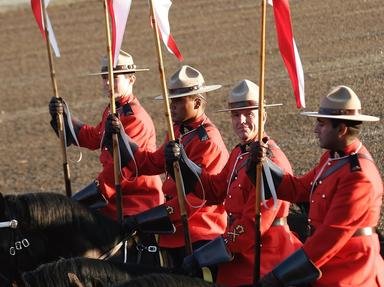Quiz Answer Key and Fun Facts
1. Although people have been living on the land that is now called Montreal for thousands of years, it wasn't until 1535 that the first Europeans arrived. Which French explorer was the first European to explore Montreal?
2. Why was Samuel de Champlain's fur trading post at Place Royal unsuccessful in the beginning of the 17th century?
3. The first permanent establishment in Montreal was founded in 1639 by Jerome le Royer de la Dauversière. Three years later another settlement was created by French missionaries. These places together were called by Montreal's original name. What was it?
4. For what reason was the slave Marie-Joseph Angélique executed in 1734?
5. Montreal was the last major French territory in Canada until it was surrendered to the British in 1760 during the French and Indian War.
6. What was the name of the canal that ran through Montreal that was completed in 1825 and helped greatly expand the shipping industry within the city?
7. Which buildings in Montreal were burned on April 25, 1849 in protests that are sometimes considered to be the beginning of the movement for Canadian independence?
8. The Guibord Case, an 1874 trial that caused controversy and discussion in Montreal, concerned the case of Henriette Brown who wanted to bury her husband in a Roman Catholic cemetery but was not allowed to by the local church because her husband Joseph Guibord had been at political odds with the church. What was the final ruling in this case?
9. For what reason was Montreal's mayor Camillien Houde imprisoned in an internment camp during World War II?
10. In 1970, Montreal was chosen to host the 1976 Summer Olympics. Although unproven, what is the commonly-believed reason Montreal was chosen to host the game?
Source: Author
Joepetz
This quiz was reviewed by FunTrivia editor
bloomsby before going online.
Any errors found in FunTrivia content are routinely corrected through our feedback system.
